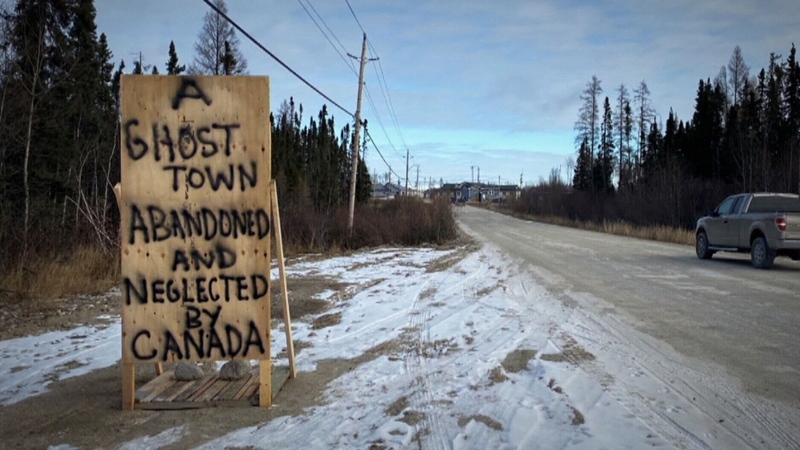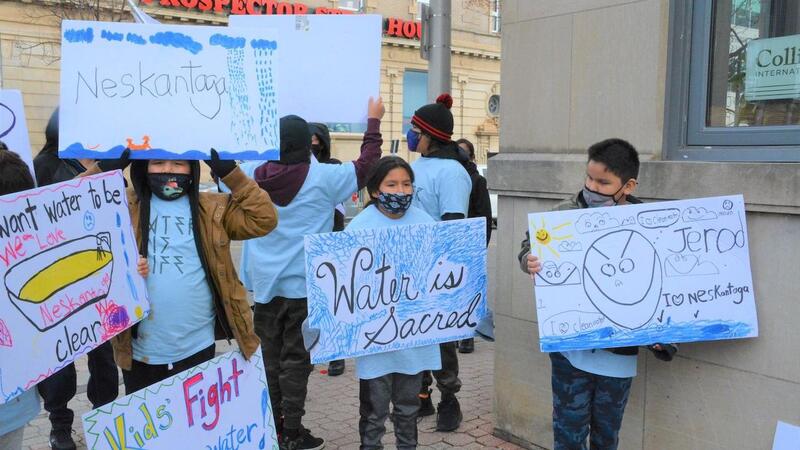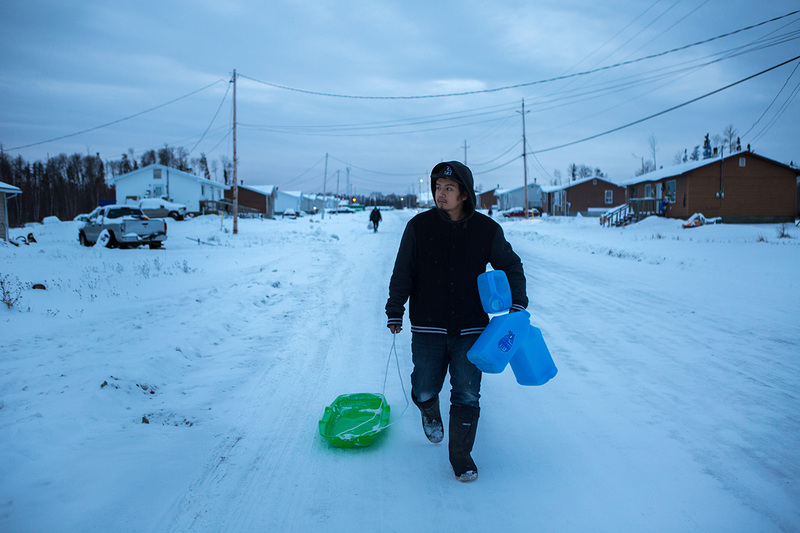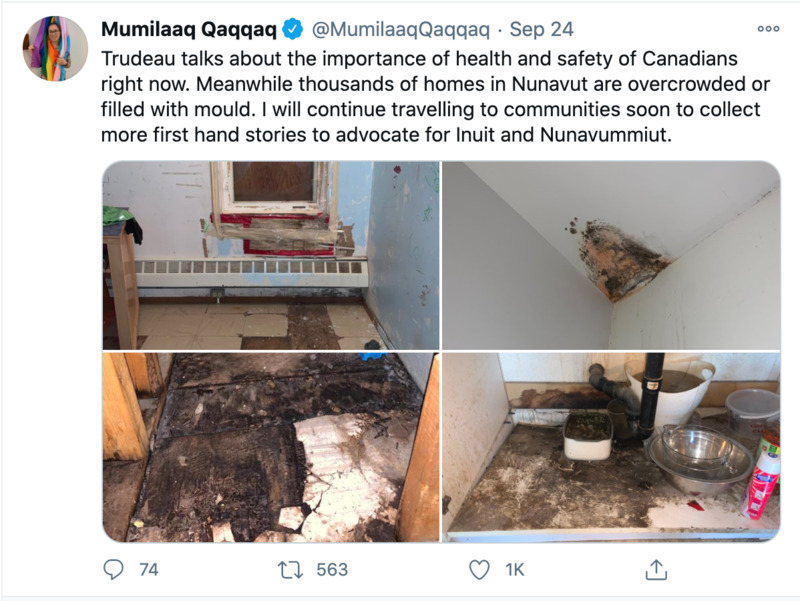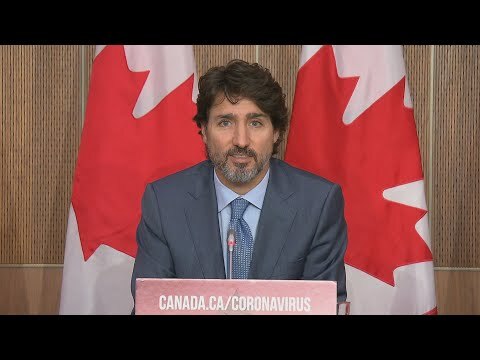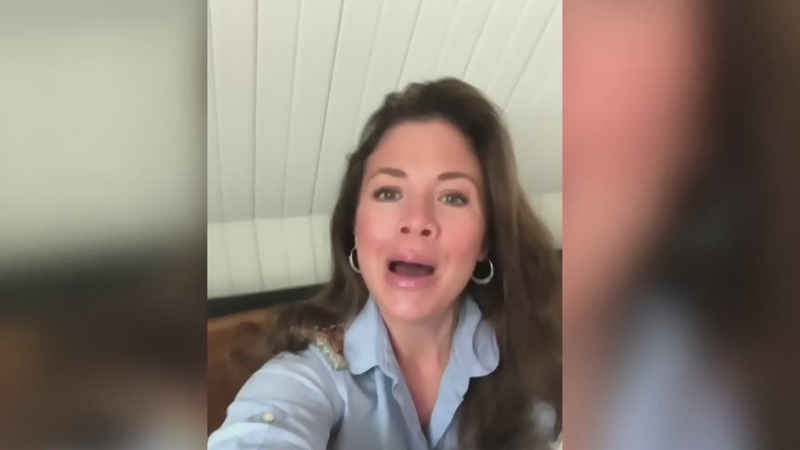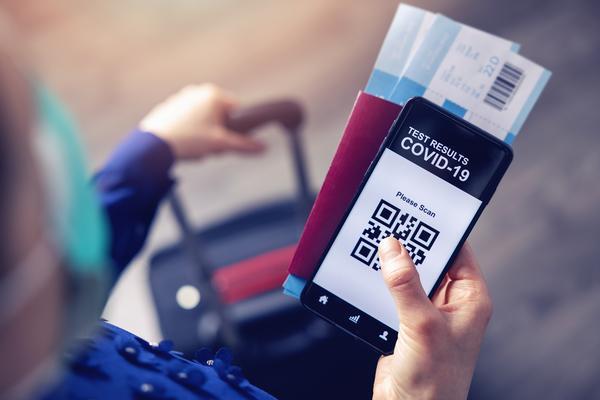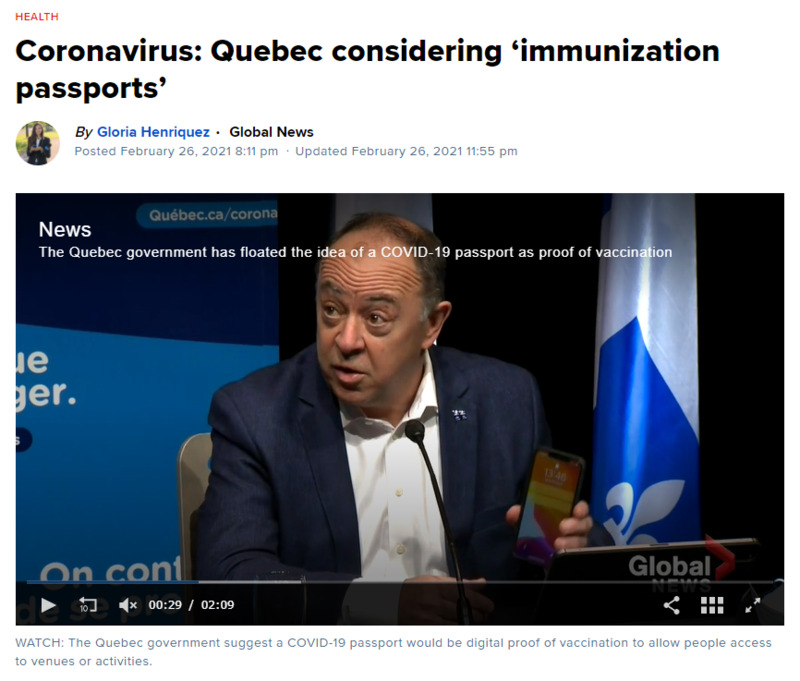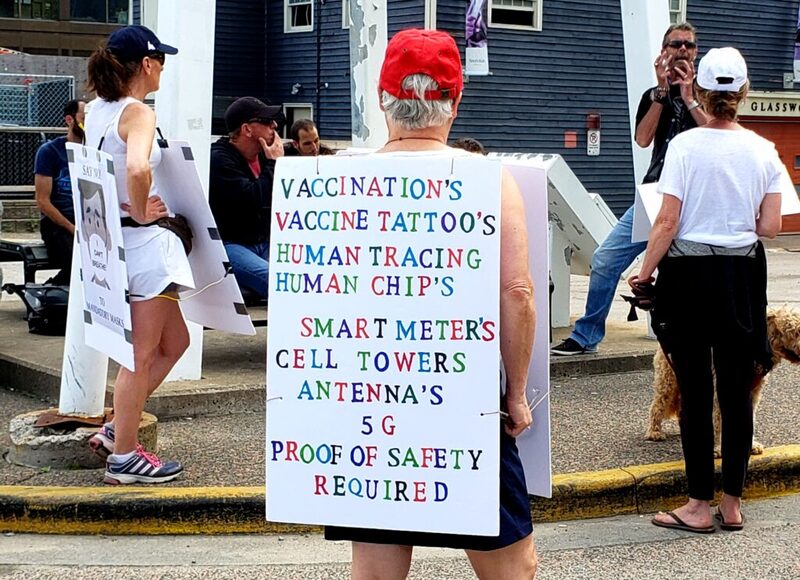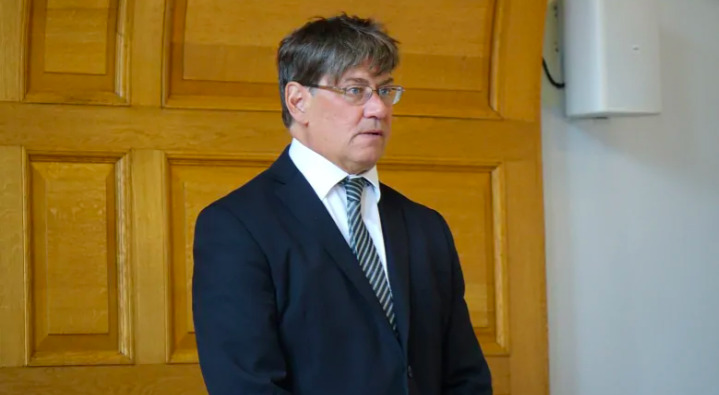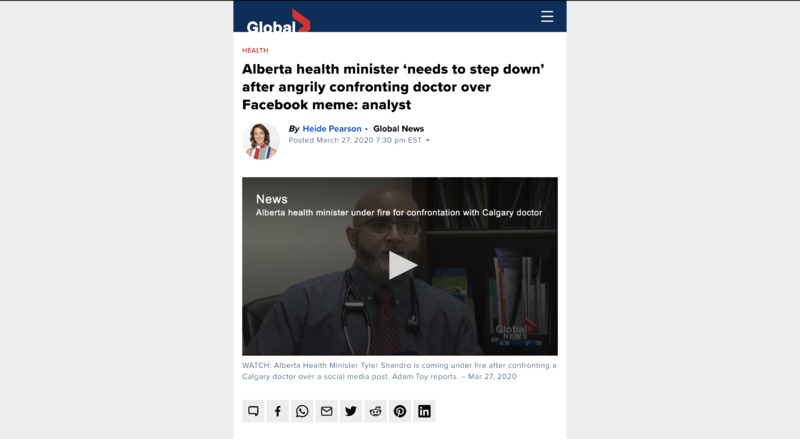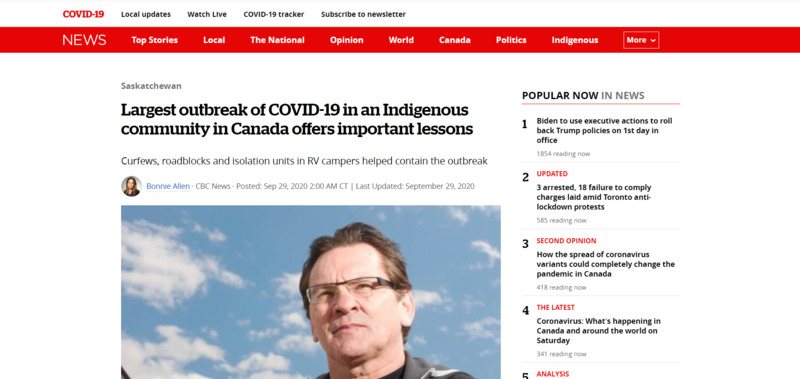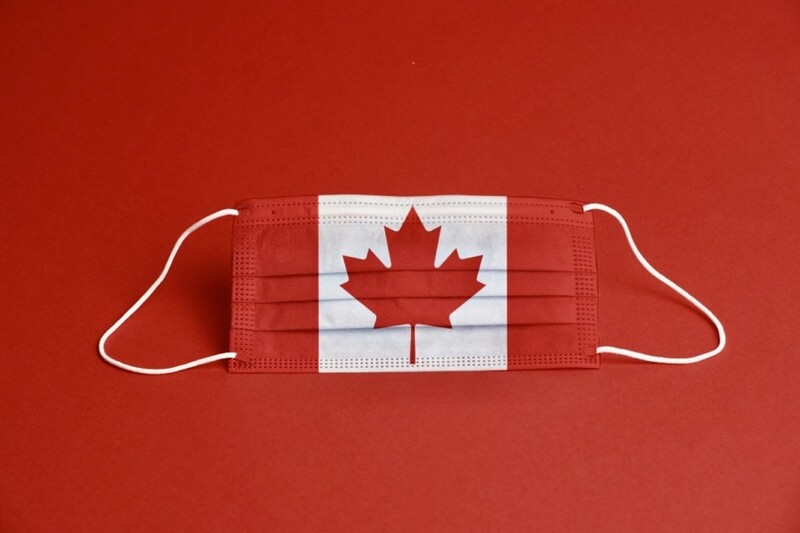Political Conspiracies, Scandals, and Crises
North
COVID-19 illuminated ongoing social and political inequalities in northern Canada. Many communities still do not have access to proper healthcare, job opportunities, and basic necessities like housing, affordable food, and clean drinking water.
News outlets commended the non-existent case count in Nunavut early in the pandemic. Remote communities seemed immune to the virus, but this was short lived as several outbreaks began in remote northern communities. However as of February 2021 only one person has died from COVID-19 in Nunavut.
While the pandemic continued to be front-page news in Canada, northern Indigenous communities fought for recognition. The water crisis at Neskantaga First Nation in northern Ontario first began in 1995 and the community still lives under a boil-water advisory. The crisis forced members of the Neskantaga First Nation to evacuate their homes and live in a hotel in Thunder Bay, a five-hour drive south. Former Member of Parliament (MP) Celina Caesar-Chavannes shows Beetabun Moonis talking about how much she misses home.
Boil-water advisories exist in many Indigenous communities, but dirty drinking water is just the tip of the iceberg for many families in remote towns. Homes are overcrowded and filled with toxic mold, while many others do not have running water or electricity.
Central
Misinterpretation of government guidelines and scientific findings, whether deliberate or accidental, can have dangerous consequences. Far-right conspiracy theorists misinterpreted the Canadian government’s accommodation of international travellers in isolation facilities, typically hotels, for fourteen days as proof of “COVID internment camps.” Canadians often consider these distrustful, outlandish views uniquely American but their existence in Canada shows just how similar our countries are.
Sophie Grégoire Trudeau, Justin Trudeau's wife, was one of the first prominent political figures to test positive for COVID-19 upon returning from an event in England. Grégoire Trudeau followed instructions to isolate and cancelled her attendance at upcoming events. Justin Trudeau, while feeling no symptoms of the virus, opted to participate in remote meetings with provincial leaders to discuss containment of the virus instead of in-person meetings.
Now that vaccination is on the horizon, provinces are more eager than ever to get their communities running as normal again. Quebec’s Health Minister Christian Dubé has suggested that each Quebecois should carry proof of immunization or QR code on their phone before resuming regular activities. This is not unprecedented. Many countries require proof of vaccinations against yellow fever or chicken pox before entry, but a bioethics professor from the Université de Montréal argued that having to present such proof before going to a supermarket or to visit family is unprecedented. Some Canadians fear the increase of discrimination that the policing of immunization would bring. In turn, this raises the concern of contraband vaccinations as people try to re-enter society.
East
Although a fringe group, followers of the online conspiracy group QAnon believe the pandemic is a hoax orchestrated by “a global cabal of Satan-worshipping [politicians].” QAnoners hold various beliefs: some claim that 5G cell phone networks caused COVID-19, or that Bill Gates and George Soros created the virus in collaboration with various national governments to implant a mind-control chip in people through the COVID-19 vaccine.
Some Atlantic Canadians had more reasonable questions about the pandemic, particularly surrounding travel bans. Newfoundland and Labrador’s Supreme Court ruled that some Newfoundlanders' rights were infringed by the travel ban, but ultimately agreed with the provincial government’s restrictions for the greater good of the province.
West
Albertans called on Health Minister Tyler Shandro to step down from his position after rumours circulated that he and his wife financially gained from her role as part owner of the Vital Partners supplementary health-benefits company. There was concern that Shandro's connection would be a conflict of interest to his role as the provincial Health Minister. However, he was allowed to continue in his duties.
The controversy came to a head following circulation of a meme showing Shandro thinking about the amount of money that could be made from the pre-calculated removal of Albertans from their provincial health care plan.
The Saskatchewan government learned many lessons following the largest COVID-19 outbreak in an Indigenous community. Local leaders and Métis representatives led the response. They implemented community traffic stops around their town to monitor citizens’ movements, imposed a curfew, and established housing for the homeless population and people that tested positive to allow for better social distancing and isolation. They brought food to those who were isolated, and monitored symptoms. Many of these measures may sound familiar, as they are ones that the province of Saskatchewan, and later Canada, adopted to further prevent the virus’ spread.
The pandemic will be remembered as a turbulent time in Canadian politics, filled with conspiracies, scandals, and protest. It was also a time when various levels of government dedicated resources to social welfare and Canadians' betterment.

